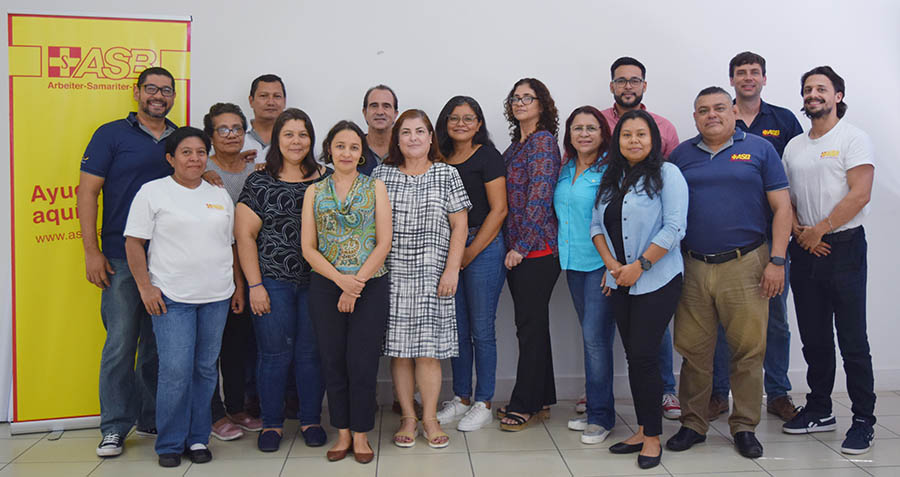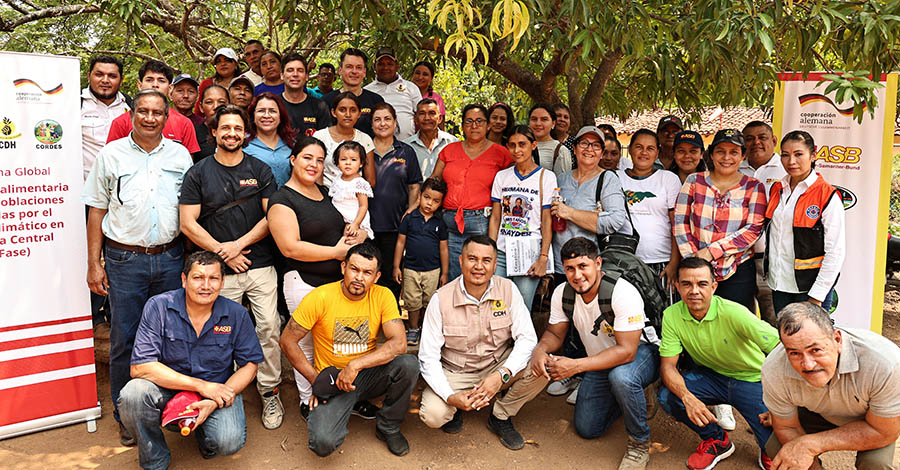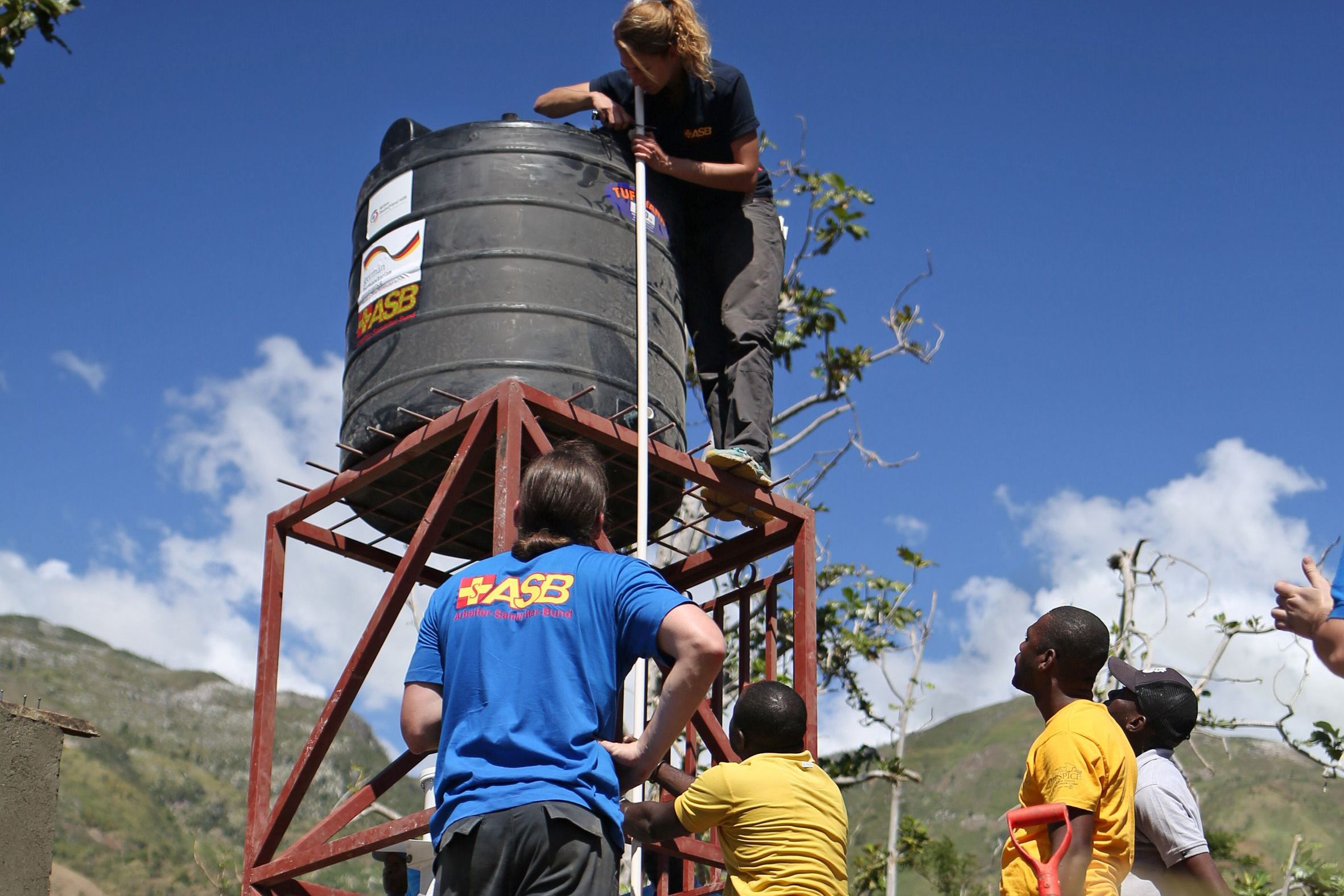Operational independence
Humanitarian action must be autonomous from the political, economic, military or other objectives that any actor may hold with regard to areas where humanitarian action is being implemented.
 Arbeiter-Samariter-Bund (ASB) o Federación de Trabajadores Samaritanos, por su nombre en español, es una organización de ayuda y bienestar activa en toda Alemania, con presencia en 30 países de cuatro continentes con programas humanitarios y de cooperación al desarrollo.
Arbeiter-Samariter-Bund (ASB) o Federación de Trabajadores Samaritanos, por su nombre en español, es una organización de ayuda y bienestar activa en toda Alemania, con presencia en 30 países de cuatro continentes con programas humanitarios y de cooperación al desarrollo.
ASB se originó en Berlín en1888, a partir de iniciativas de trabajadores y artesanos para entrenarse en el campo del rescate de emergencia y la formación en primeros auxilios para atender los accidentes en las fábricas que nacían en aquel entonces. ASB es independiente desde el punto de vista político y confesional. Ayudamos de forma rápida y directa a todos los que necesitan nuestra ayuda.
Más de 1,5 millones de personas apoyan a ASB con su afiliación. La organización está formada por 16 asociaciones estatales, 205 asociaciones regionales, de distrito y municipales y 125 sociedades de responsabilidad limitada (GmbH). ASB emplea a unos 50.000 trabajadores a tiempo completo y a más de 20.000 voluntarios en todo el país.
Junto con sus organizaciones asociadas, ASB presta una amplia gama de ayuda. Desde la ayuda de emergencia tras catástrofes originadas por fenómenos meteorológicos, epidemias u otras crisis humanitarias, pasando por la reconstrucción y la preparación ante desastres, hasta la ayuda a las personas para que se ayuden a sí mismas.
El objetivo es siempre reducir las c ausas de la pobreza y ayudar a las personas a desarrollarse por sí mismas, para garantizar su bienestar y unas condiciones de vida dignas.
ausas de la pobreza y ayudar a las personas a desarrollarse por sí mismas, para garantizar su bienestar y unas condiciones de vida dignas.
En América Latina, ASB inició sus operaciones en 1998 en Nicaragua, para prestar asistencia humanitaria en respuesta al huracán Mitch. Desde aquel entonces, ASB ha implementado un gran número de proyectos de emergencia, de recuperación y rehabilitación, de seguridad alimentaria y adaptación al cambio climático, desarrollo y lucha contra la pobreza y de gestión inclusiva de riesgos ante desastres, así también programas para combatir las causas estructurales de la migración.
ASB cuenta con una oficina regional en Managua, Nicaragua y ejecuta en Centroamérica, programas de desarrollo y ayuda humanitaria de alcance regional en respuesta a los efectos del cambio climático. También implementan programas de gestión integral del riesgo e inclusión de personas con discapacidad a nivel regional, nacional y local en Guatemala, Honduras, El Salvador, Nicaragua, Venezuela y Colombia.

ASB cuenta en Alemania con un equipo de respuesta rápida para situaciones de emergencia, denominado FAST (First Assistance Samariter Team) el cual se compone de profesionales sanitarios, médicos y otros especialistas en agua y saneamiento.
Una vez ocurrido un desastre de proporciones mayores, si es requerido, el equipo FAST se despliega de inmediato con tal de brindar atención primaria en salud y garantizar el acceso a agua potable. Para poder brindar este servicio, ASB cuenta con 120 profesionales de la salud entrenados para actuar en emergencias y con los equipos y suministros necesarios, como son tiendas de campaña, camillas, insumos médicos, potabilizadoras de agua, etc.
Humanitarian action must be autonomous from the political, economic, military or other objectives that any actor may hold with regard to areas where humanitarian action is being implemented.
Humanitarian action must be carried out on the basis of need alone, giving priority to the most urgent cases of distress and making no distinctions on the basis of nationality, race, gender, religious belief, class or political opinions.
Humanitarian actors must not take sides in hostilities or engage in controversies of a political, racial, religious or ideological nature.
Human suffering must be addressed wherever it is found. The purpose of humanitarian action is to protect life and health and ensure respect for human beings.